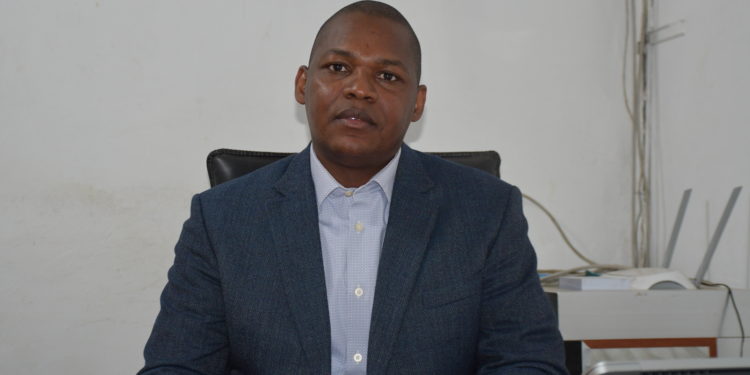The 2021 coup in Guinea was the lesser of two evils the country had to contend with, according to a top opposition politician.
Abdoul Kader Makanera, a senior aide to former presidential aspirant Sidya Toure, said despite being a stain on democracy, Guineans were better off with the unconstitutional change of government than letting deposed former President Alpha Conde had his way with the constitution.
Conde was forced out of power on September 5 by a group of Special Forces soldiers led by Col. Mamady Doumbouya, almost 10 months into his first year after winning a controversial third term.
“The military coup, I couldn’t say that we are, as it is, happy about it, but it was a solution to something that had established itself that was unprecedent,” said Mr Makanera, who is the Chief of Staff of Mr Toure, who heads the Union Des Forces Republicaines or the Union of Republican Forces, known by its French acronym UFR.
A former veteran opposition politician, Conde first came to power in 2010, following the 2008 coup by Mousa Dadis Camara that followed the death of longtime president Lansana Conte, who himself came to power in a coup, following the death of independence leader Sekou Toure.
The 2010 election, even though it was disputed, marked the first democratic change of government in Guinea. It also occasioned hope for the country which had gone through decades of dictatorship since independence from France in 1958 and several chaotic moments characterized by coups, attempted coups and mutinies.
Critics of Conde say not only did he fail to take advantage of the opportunity his election offered to effect much needed development, he also transformed himself into an autocrat.
But it was his decision to change the constitution to allow him run for a third term that hit the last nail on his political coffin.
The opposition and civil society staged mass protests across the country against the decision. Conde would have his way. But he fell out with many of his allies, among them Sidya Toure.
Toure, a veteran politician who served as Prime Minister under President Conte from 1996 to 1999, worked with the Conde regime briefly as his Higher Representative, with a mandate to deal with Guinea’s international development partners.
Toure’s UFR is one of the top three largest political parties, according to results of recent elections in the country. It is also one of the parties that constitute the Front National Pour La Defence De Constitution or the National Front for the Defence of the Constitution (FNDC), a coalition of civil society and political parties that coordinated the anti-third term bid of Conde.
The FNDC considered and treated Conde’s last one year in power as illegitimate. In response to its protests, scores of people were killed and many more were jailed by the dying regime.
Toure has contested the presidency on two occasions under the UFR, first in 2010 and then in 2015. He boycotted the last two elections – presidential and legislative. Makanera said while that was a difficult decision, it reflected the UFR’s principles.
According to Makanera, the September 5 coup was also a message to future leaders.
“It (coup) is not good for the country. No one wishes to have to reset every time, because it sets you back,” he said, adding: “It’s very unfortunate that when people are given the extraordinary privilege that is it to be president or a high ranking official in a country, where the people entrust you, that at some point you don’t get the wisdom to know that you should return that favour to the people.”
Makanera also said that while coups are bad, they are easier to deal with than a power cloaked in civilian outlook but which operates outside democratic principles.
“With a military coup we know it’s an illegitimate power that’s not going to be able to stay because it wasn’t set on institution. So that you know how to fight. [But] how do you fight a system that came in legally, legitimately and decides to use that legitimacy and legal system to stay… This is worse than a military coup. That’s why it was the lesser of two evils. That’s the reason why we applauded it and we still think it was a good thing that that happened because that sends a signal,” he said.
Seven months after the latest coup in Guinea, frustration has been growing within the civil society and political parties. They are especially unsettled about the slow pace of the transition process.
The CNRD junta of Col. Doumbouya promised to hand over power but it has failed to provide any clear pathway to that.
The political parties are especially unsettled by the junta leader’s silence.
Makanera said they are behaving as though they were elected with a mandate. He said the UFR’s proposal for a 15-month transition has gone unnoticed by the junta.
The full interview of Makanera will be aired on ManoReporters web TV soon.






















